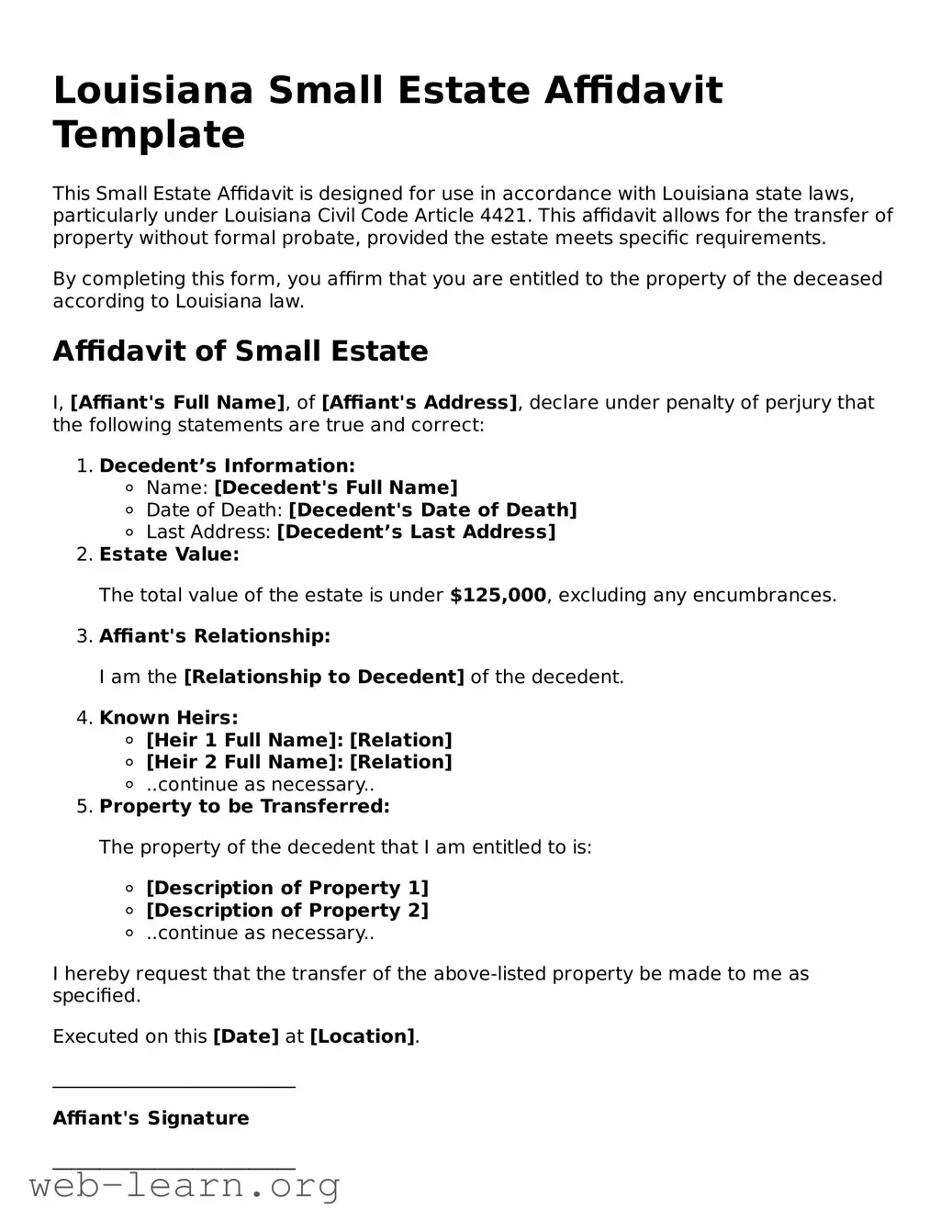Louisiana Small Estate Affidavit Template
This Small Estate Affidavit is designed for use in accordance with Louisiana state laws, particularly under Louisiana Civil Code Article 4421. This affidavit allows for the transfer of property without formal probate, provided the estate meets specific requirements.
By completing this form, you affirm that you are entitled to the property of the deceased according to Louisiana law.
Affidavit of Small Estate
I, [Affiant's Full Name], of [Affiant's Address], declare under penalty of perjury that the following statements are true and correct:
- Decedent’s Information:
- Name: [Decedent's Full Name]
- Date of Death: [Decedent's Date of Death]
- Last Address: [Decedent’s Last Address]
- Estate Value:
The total value of the estate is under $125,000, excluding any encumbrances.
- Affiant's Relationship:
I am the [Relationship to Decedent] of the decedent.
- Known Heirs:
- [Heir 1 Full Name]: [Relation]
- [Heir 2 Full Name]: [Relation]
- ..continue as necessary..
- Property to be Transferred:
The property of the decedent that I am entitled to is:
- [Description of Property 1]
- [Description of Property 2]
- ..continue as necessary..
I hereby request that the transfer of the above-listed property be made to me as specified.
Executed on this [Date] at [Location].
__________________________
Affiant's Signature
__________________________
Printed Name of Affiant
__________________________
Notary Public Signature
Commission Number: __________________
